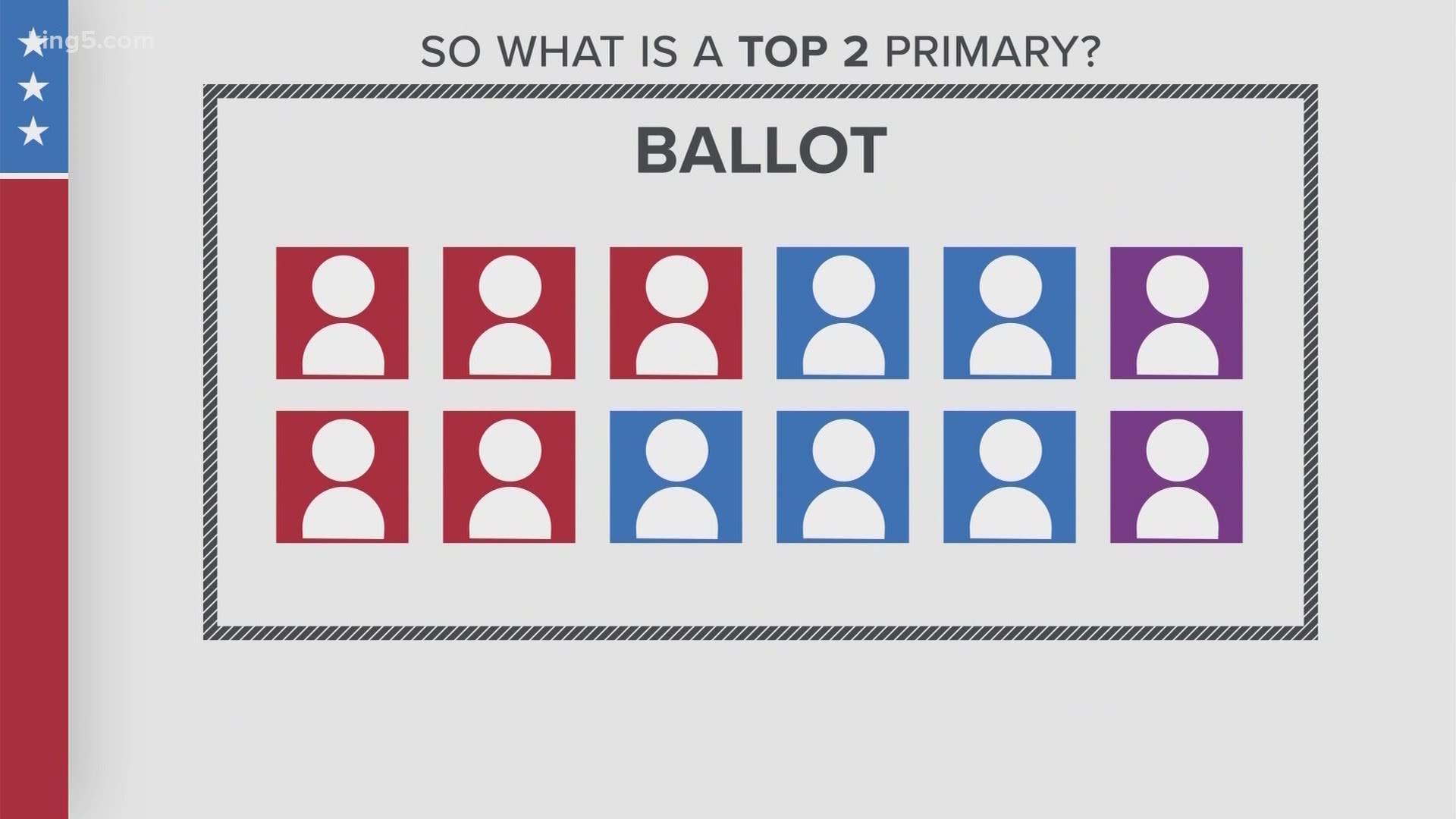OLYMPIA, Wash. — Incumbent Kim Wyman, a Republican, and challenger Gael Tarleton, a Democrat, will advance to the general election in the race for secretary of state.
As of Wednesday afternoon, Wyman had 50% of the statewide vote, and Tarleton, a state legislator, had 45% of the vote.
Wyman thanked voters in a prepared statement Tuesday after early returns showed that she was in the lead.
“While there are still many ballots left to count, I am incredibly humbled by the support and response from voters tonight. With our state’s accessible and secure elections system, voters were able to safely cast their votes while on the verge of shattering our 2016 turnout in the process. Washington’s elections lead the rest of the country in accessibility and security and that is what I will be celebrating tonight.”
Four candidates were on the ballot: Wyman, Ed Minger, Gentry Lange, and Tarleton.
The two candidates with the most votes face off in the November general election, regardless of party.
Wyman has served as secretary of state since 2013. She was previously the Thurston County auditor.
In her official elections statement, Wyman says her most "critical responsibility is to inspire public confidence in Washington's elections," pointing to a statewide voter registration system for same-day registration, having established the first security operations center to respond to "foreign interference and cybersecurity threats," and efforts to "develop robust state and county continuity of operations plans to respond in a pandemic."
Of Wyman's opponents, Tarleton appears to have the most elected experience. She's serving as state representative of the 36th Legislative District. Previously, she served as a Seattle Port commissioner from 2008-2013 and as port commission president before being elected to the State House.
Tarleton says the state needs "a secretary of state who will boldly defend every vote and every voter," adding that she believes the secretary of state's office needs a "new type of leader to protect our election systems and voter information against current emerging threats."

